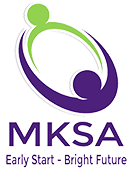In a school, the office in charge of special education services.
Archives: Terms to Know
Pervasive Developmental Disorder (PDD)
Characterized by severe and pervasive impairment in the development of reciprocal social interaction associated with impairment in either verbal or nonverbal communication skills or with the presence of stereotyped behavior, interests and activities.
Perseveration
The repeating of words, motions, or tasks.
Ongoing Service Coordinator (OSC)
An individual who works in partnership with the family by providing assistance and services that help the family to coordinate and obtain their rights under the Early Intervention Program and services agreed upon on the IFSP. The OSC is designated in the IFSP.
Modifications
Changes in procedure or format which provide a child with an equal opportunity to participate and demonstrate his knowledge and abilities. This can include changes in presentation, method of child’s response and/or the process a child uses to drive responses.
Mainstream
The practice of educating classified special education children in the regular classroom for at least part of the child’s school programs.
Least Restrictive Environment
Refers to the education of students with disabilities to the maximum extent appropriate with children without disabilities.
Learning Disability (LD)
A disorder in one or more of the basic psychological processes in understanding or in using language, spoken or written, which manifests itself in an imperfect ability to listen, think, speak, read, write, spell, or to do mathematical calculations.
Itinerant Services
Support provided by an outside group or agency who comes to the school to provide special education, technology-based services, adaptive access support for the visually impaired, support for the hearing impaired, etc.
Individualized Family Service Plan (IFSP)
A written plan for the child’s and family’s services in the Early Intervention Program that the family develops with a team of qualified personnel and the EIOD which includes the child’s current functioning, goals and frequency, duration and location of special education and related services to be provided.
